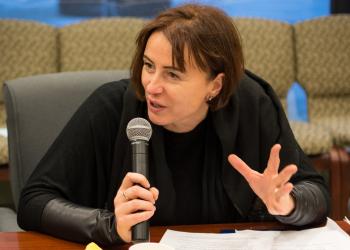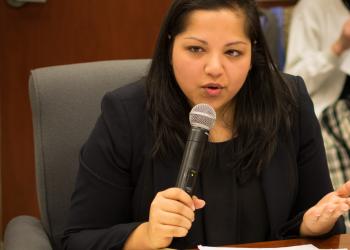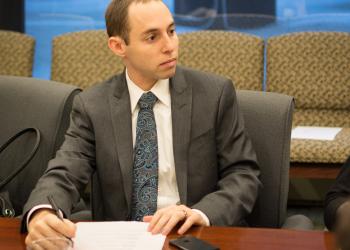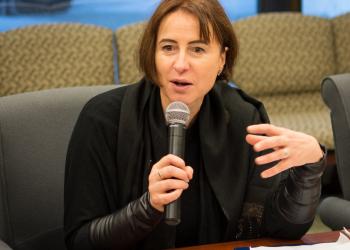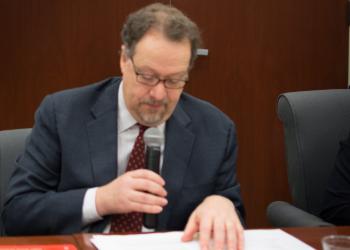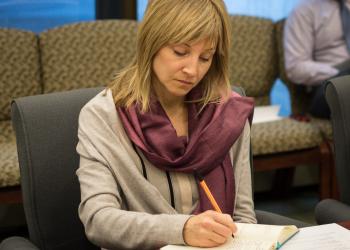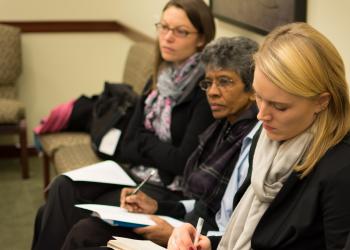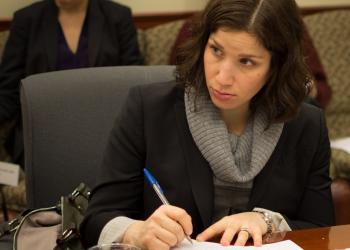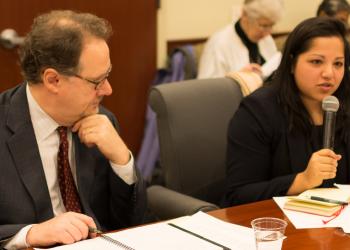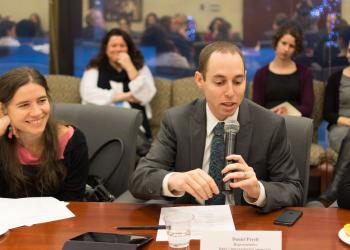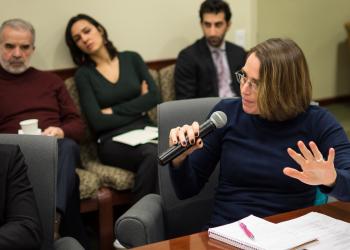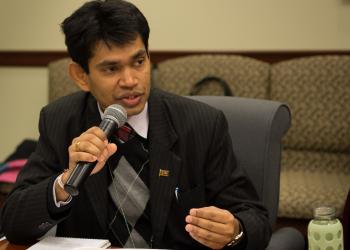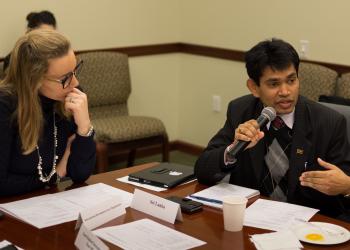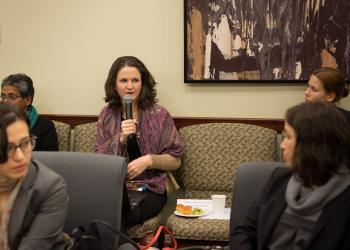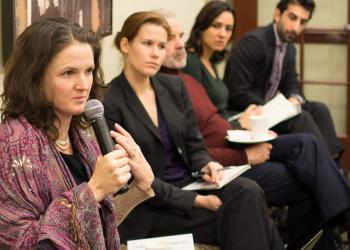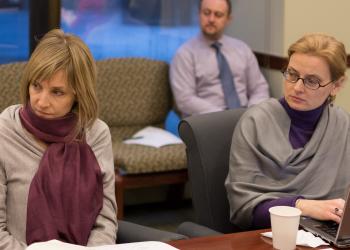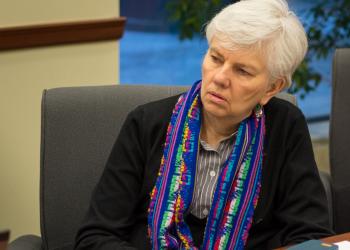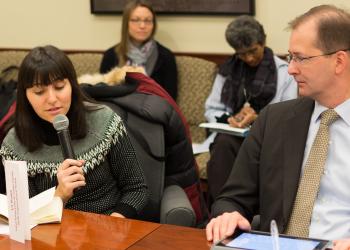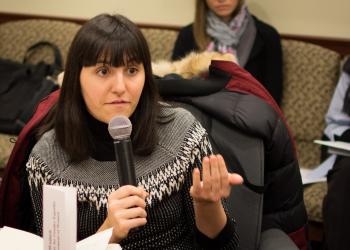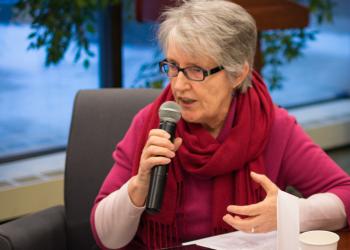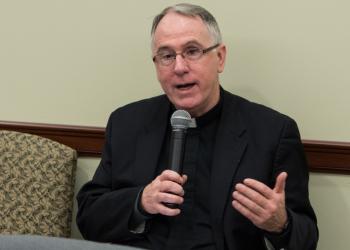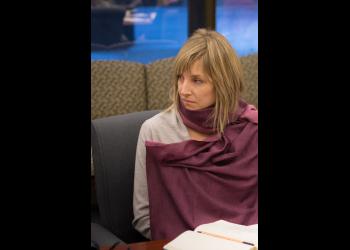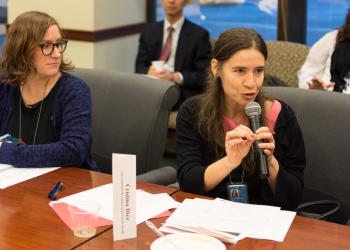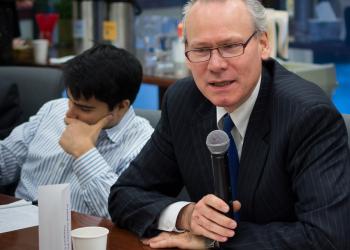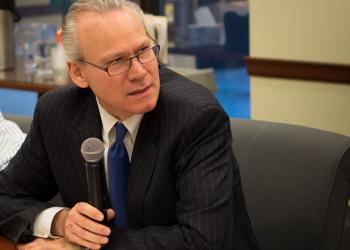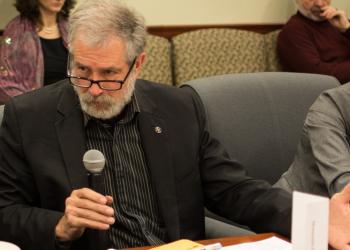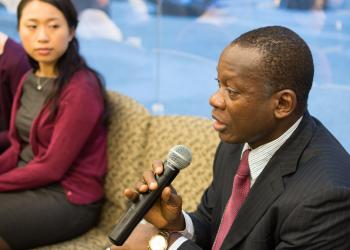Peace and security are seen as essential to new development goals
The impact of violence and conflict on development needs to be considered in any new post-2015 development goals, said speakers at a monthly breakfast dialogue at the offices of the Baha’i International Community.
“We can’t eradicate poverty without eradicating violence,” said Andrew Tomlinson, the director of the Quaker United Nations Office, which co-sponsored the meeting with the BIC and International Movement ATD Fourth World. “In many societies [where conflict is prevalent], the development aid process is like pouring water into a bucket with holes.”
Sarah Cliffe, special adviser and assistant secretary-general of Civilian Capacities to the United Nations, said the threat of conflict and violence affects everything from whether children are able to go to school safely to the inability to access jobs, health care or education, whether because of conflict or high levels of crime.
“The impact of violence and conflict on social and economic development is deep,” said Dr. Cliffe. “Many countries have seen their development held back by these factors.”
Dr. Cliffe and other participants said new development goals could include measurable targets for good governance, institution building, and political processes that increase basic safety and security, justice, and confidence building.
When security and stability are re-established and sustained in post-conflict societies, said Dr. Cliffe, great development gains can be made. She cited Ethiopia, Mozambique and Rwanda as examples, noting for example that between 1990 and 2009, Ethiopia quadrupled access to improved water, while Mozambique tripled its primary school completion rate from 1999 to 2007.
Kavita Desai, advisor to the Permanent Mission of Timor-Leste to the United Nations, discussed efforts to end and then heal the decades-long conflict there in the early 2000s, noting that her country had achieved stability and security – which allowed recently for double-digit growth.
She called violence “development in reverse,” adding that violence is rampant in many countries and that it must be addressed in new development goals.
Peace is a “universal need,” said Ms. Desai. “Violence is rampant across all countries…and we are all asking for peace.”
Dr. Cliffe noted that while Millennium Development Goals (MDGs) were good, their focus was mainly limited to “water, health, and education” since the world community was unable or unwilling to address larger, more politically sensitive questions related to ending conflict.
“Building the justice system was not part of the MDGs,” she said, arguing for the inclusion of such objectives in the post-2015 development agenda.
“For many countries, this will require international assistance,” said Dr. Cliffe. “And we know that institution building takes time. It can take a generation.”
After opening remarks by these speakers, there was an open discussion among the diplomats, UN officials, and representatives of civil society in attendance.
The meeting, which had for its topic “Peace, poverty, and violence; interlinkages for sustainable development,” was the sixteenth such breakfast dialogue meeting on the post-2015 development agenda at the BIC offices. In addition to the BIC and the Quaker UN Office, the meeting was sponsored by International Movement ATD Fourth World.
The meeting was held on 17 December 2013. To read notes of the meeting, click here.
